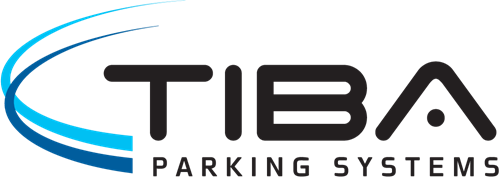Paradox Engineering: Smart Technology Better Than Parking Fees for Congestion Reduction

A few weeks ago, Parisians voted to triple parking fees for SUVs and heavy vehicles. The cost for non-residents to park SUVs in Paris’ central districts will soar to EUR 18 per hour for the first two hours, compared to €6 per hour for smaller cars, and exceed EUR 220 for a six-hour stay. The new regulation was warmly supported by the City Mayor, Anne Hidalgo, to reduce traffic congestion and air pollution ahead of this year's Olympic Games.
Parking fees have a significant impact on traffic congestion. If increasing car park prices, city managers can expect a quick drop in private vehicles entering the city or approaching the city centre. Benefits for the environment and urban liveability are quite obvious, but possible consequences for local businesses are also to be considered.
In the UK, the City of York is proposing to rise daily fees from GBP 18 to 20 in council-run car parks to increase municipal revenues and direct the additional income to road maintenance services and public transportation systems. People are quite polarized about the new parking fees, and many fear they would discourage tourists and visitors, or result in more illegal parking. As free or low-cost parking acts as a loss leader for out-of-town shopping malls, shopkeepers and restaurant owners in York lament the loss of potential customers.
Differently from parking fees, smart technologies represent an effective and reliable way to reduce traffic without negative impacts on urban economy. By installing and connecting Smart Parking Sensors, municipalities and parking operators can remotely monitor car parks and collect a number of parking-related data, including the number of available lots in a specific area, the duration of each parking and possible abuses.
Data can seamlessly feed mobile apps, variable message panels and other traffic guidance systems to direct drivers to the nearest available parking bay, thus minimizing idle cruising and the related fuel consumption, air and noise pollution, waste of time and stress. Real-life cases of cities using Paradox Engineering’s technologies prove that Smart Parking solutions reduce traffic congestion and CO2 emissions by up to 30%.
Local businesses can offer parking coupons or valet services to their customers, contributing to a wiser use of comfortable nearby parking areas. Historical data can also be leveraged for medium- and long-term urban planning: city managers can analyse parking behaviours to widen existing facilities where necessary or reconvert under-used parking areas and intensify public transportation wherever possible.
For more information, please visit www.pdxeng.ch
About Paradox Engineering 
Established in 2005 and headquartered in Switzerland, Paradox Engineering is the Internet of Things (IoT) Excellence Centre of MinebeaMitsumi Group. The company pioneers technologies to implement highly scalable IoT network solutions, from edge devices to management platforms, to control critical public services such as streetlighting, parking management, municipal waste collection, and environmental monitoring. Thanks to intelligent technology solutions, Paradox Engineering strives to unleash opportunities for people and communities, helping the transition towards more liveable, sustainable, and smarter cities.
For further information, please visit https://www.pdxeng.ch




Comments
There are no comments yet for this item
Join the discussion